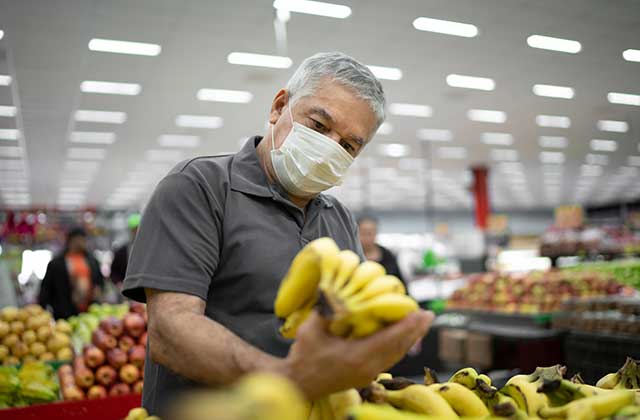I have to admit, sometimes I’m a little worried when I see all the publicity and awareness about breast cancer. Certainly I consider breast cancer a significant threat. As an integrative doctor, specializing in women’s health, I’ve seen enough patients battling this disease to know this first-hand.
But as bad as it is, breast cancer is not the biggest killer of women. Heart disease kills more women than any other disease. In fact it kills more women than all cancers combined. And it kills more older women than it kills older men.
Unfortunately, not enough women take this threat seriously enough. While it’s slowly gaining more recognition, it’s not on our radars… and it’s not on enough physicians’ radars as well.
As one of my colleagues, a thoracic surgeon with a great sense of humor, said in a speech I recently attended, “I wish doctors would stop giving women the bikini treatment, focusing only on breasts and reproductive organs.”
Indeed, there’s a lot more of you in between that needs care. Chief among these parts of your body is your heart.
How To Give Your Heart Some Good, Healthy Love
Now, certainly some women have the odds already stacked against them if they have a family history of heart disease.
But for most of us, protecting your heart is a matter of lifestyle changes.
Eat lots of veggies and fruits to get lots of fiber and antioxidants.
Move your body – sweat!
Take care of your emotional health. Minimize stress and maximize your relationships.
You’ve probably heard this advice but I’ll repeat it. Because here’s the thing that you may not hear from your doctor…
No medical intervention – surgery or drugs or special medical devices – none of these can fix a broken heart.
Sure, we can patch things together a bit to help your heart limp along. But it’s not the same as having a healthy heart.
And here’s another story you may not hear very much about. Many of these interventions may even make things worse.
Several studies have shown certain statin drugs offer no benefit to women at risk for heart disease. And there is some evidence that it may even increase women’s risk for heart attacks and death.[1]
In 2012, the Archives of Internal Medicine published a study showing that statins increased the risk for diabetes in post-menopausal women by 71%.[2]
I’m not saying this because I don’t value the technology western medicine offers. I’ve seen firsthand how conventional medicine can save lives.
But the best cure is prevention. And the best doctor is you.
Easy Steps To Moving More
Now you may be gritting your teeth as you read this, thinking that it will be too hard to change how you eat and fit fitness in.
And I won’t lie and tell you it won’t take some will power and intention. It will.
But there are two points of comfort I want to offer you right now…
Even just small changes can make a tremendous difference when it comes to heart health. As New York Times health journalist, Gretchen Reynolds wrote in her groundbreaking book, The First 20 Minutes, the biggest health gains are made in simply moving 20 minutes a day more if you’ve been sedentary.
So while moving more than 20 minutes is even better (although too much exercising, like running marathons, can also be bad for your heart), don’t put activity off because you can’t get yourself to exercise for an hour. Just do 20 minutes and you’ve already changed your fate.
You don’t have to make these changes or get the exercise in all at once. Use small bites.
When it comes to exercise, do 10 minutes in the morning and another 10 minutes in the afternoon.
Sneaky Ways To Shift Your Diet
When it comes to improving nutrition, you don’t have to start eating only tofu and broccoli cold turkey. Make shifts like snacking on fruit, rather than chips. Start changing out your white flour pasta and bread for whole grains.
Add a salad to every meal and an extra serving of veggies and eat those before you dig into everything else.
One of my favorite ways to get more heart-healthy vegetables in is to take chlorella either as a tablet or as granules you can mix right into your food. Chlorella not only gives you powerful heart-healthy antioxidants like chlorophyll and beta carotene, but it also gives you vitamins essential for heart health like vitamin D and B12.
And it gives your heart the essential mineral, magnesium.
Finally, research indicates chlorella may help make a difference in maintaining healthy cholesterol, blood sugar and blood pressure levels as well as blood pressure levels.[3,4,5]
Women, You Are Your Best Heart Doctor
Heart disease is a very real threat. Medicine can’t cure it. Surgery can’t fix it.
You’re the best doctor when it comes to your heart. Only the changes you make in your life can truly keep your heart healthy for the long term.
But don’t sweat it – it doesn’t have to be a monumental task.
If you take it step by step, you’ll make big changes you never thought you could make!
So take the first step right now. Make a commitment to yourself and your future. Take a small action today and do it again tomorrow and the next day and the next, adding on as you go. By doing so, you’ll be walking towards this heart-healthy future you’ve promised to yourself.
Sources:
[1] Vos E. Statins for women, elderly: Malpractice? Nutrition, Metabolism & Cardiovascular Diseases (2007) 17, e19ee20
[2] Culver AL et al. Statin use and risk of diabetes mellitus in postmenopausal women in the Women’s Health Initiative. Arch Intern Med. 2012 Jan 23;172(2):144-52. Epub 2012 Jan 9.
[3] Hashimoto S et al. Effects of soybean phospholipid, chlorella pyrenoidosa and clofibrate on collagen and elastin synthesis in the aorta and on the serum and liver lipid contents in rats, Experimental and Molecular Pathology, 1982; 36: pp. 99-106.
[4] Merchant RE. Dietary supplementation with chlorella pyrenoidosa produces positive results in patients with cancer or suffering from certain common chronic illnesses, Townsend Letter for Doctors & Patients, 2001; 211-212: pp. 74-80.
[5] Mizoguchi, T. Nutrigenomic Studies of Effects of Chlorella on Subjects with High-Risk Factors for Lifestyle-Related Disease. J Med Food 11 (3) 2008, 395-404.
Click here the Top Women’s Health Questions.
Article Source: https://EzineArticles.com/expert/Shera_Raisen/1818619
Article Source: http://EzineArticles.com/8297200




